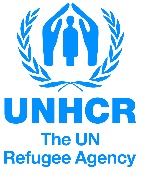Diffa Urbanization Project – Settling Refugees outside of Camps is Possible!
Displaced people currently account for 1 in every 5 people in the region of Diffa. Until now, the vast majority of the 100,000 displaced people in the region are generously hosted by local families. However, with the increased numbers of displaced people, the absorption capacity of Diffa’s host population is stretched to the limit. This situation has the potential to result in further conflict, as both populations compete for the very limited resources available.
The situation in Northern Nigeria is a protracted conflict, with no immediate end in sight. Therefore, as far as the population which fled to Niger is concerned, durable and innovative solutions are necessary. UNHCR is implementing a strong ‘out-of-camp policy’ in the region, so as to meet the needs of the majority of the vulnerable displaced population. In addition to immediate emergency assistance, UNHCR’s strategy is to work closely with local municipalities to facilitate access to land for displaced and vulnerable host populations. The aim of the ‘Urbanization Project’ is to assist the local municipalities to create the conditions necessary to access land and housing in a legal manner. UNHCR is providing support so the municipalities can develop new areas of serviced land appropriate for building. The land is divided into ‘social parcels’ which are being distributed to beneficiaries. The displaced populations and vulnerable host populations are being settled on these land parcels where they can build homes. If they do decide to leave in the future, their plots will become a communal good, which will benefit the community. Additional land parcels developed will be reserved for roads and public infrastructure for the community.
The local and national authorities are very eager and enthusiastic about the project. It essentially provides a durable long-term solution to an immediate humanitarian need, which benefits both displaced and host populations.
However, in implementing this policy, UNHCR is encountering numerous challenges. First of all, there is a general lack of documentation: neither the vast majority of those claiming to be Nigerian refugees, nor those who state that they are returning Niger citizens possess IDs. Due to the lack of certainty regarding who is who, land titles are being issued in the absence of personal identity documents. Secondly, providing plots and houses to the displaced takes time and is not appropriate during an emergency phase, when many people have to be accommodated in a short period of time. Nevertheless, the project is supported by all stakeholders in the Diffa region and has been generously funded by ECHO and Japan. However to expand the project even further, at the request of numerous local governments in the Diffa region, the funds are currently lacking.
The videos above show a number of the beneficiaries - refugees from Nigeria and returnees from Niger, discussing the positive impact of the project on their lives: Being a refugee does not necessarily mean that one must live in a refugee camp.
1 Notes
 myangelicalinspiration reblogged this from unhcrniger
myangelicalinspiration reblogged this from unhcrniger tkonra likes this
tkonra likes this unhcrniger posted this
unhcrniger posted this

